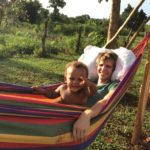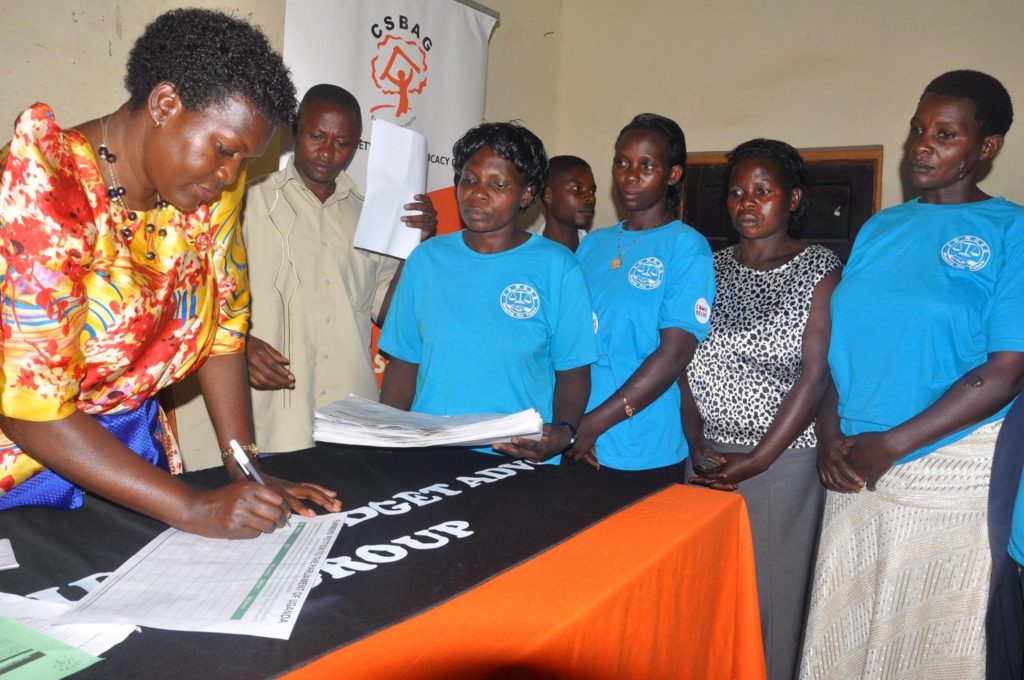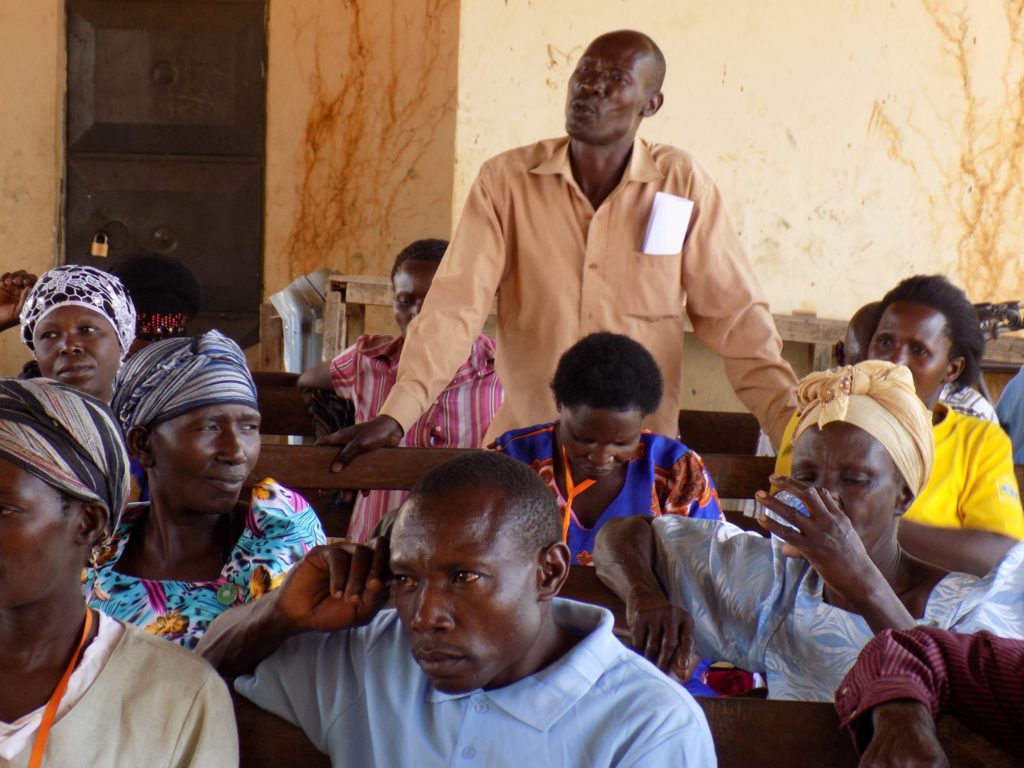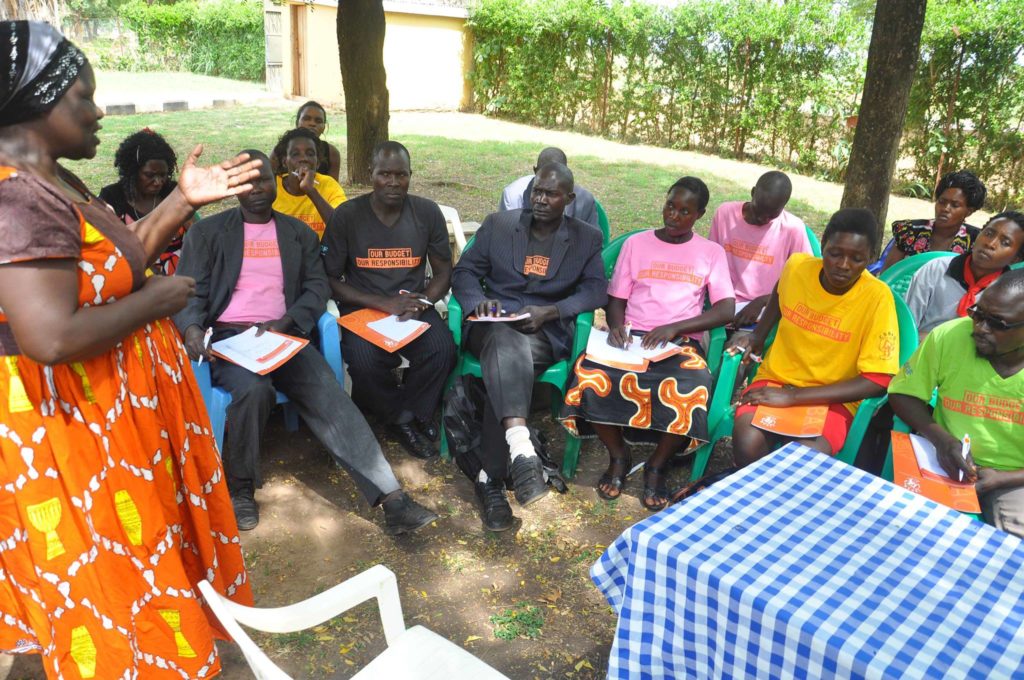Minds of the Movement
An ICNC blog on the people and power of civil resistance
by Phil WilmotJuly 06, 2017
In places like Uganda where political leaders leverage their influence as a personal business, institutional tactics like dialogue and advocacy tend to fail. They simply pose no substantial threat to the kleptocrats.
Yet one coalition in Uganda has managed to score a significant success rate using primarily institutional methods (such as lobbying) as opposed to primarily civil resistance methods (i.e. applying pressure on powerholders in nonviolent ways, such as boycotts and strikes). Whether a movement uses the former, the latter, or a mix of the two is an important strategic choice that only a movement itself can make as a function of its circumstances.
Citizens in Mityana district present their petition to Hon. Sylivia Namabidde asking MPs to reject the proposal to tax agriculture inputs in 2014. Photo courtesy of CSBAG.
Since 2013, the powerful Ugandan government – headed by repressive 31-year dictator Yoweri Museveni – has accepted 42 percent of the 363 proposals submitted by the Civil Society Budget Advocacy Group (CSBAG).
That may not look impressive but in a kleptocracy where any leader can harass and arrest his constituents with impunity when they take steps to expose corruption, activists should be taking note of strategic choices CSBAG is making.
During the past three weeks, I visited dozens of member organizations in the CSBAG coalition based around the country. No one mentioned anything like “nonviolent resistance;” most used the verb “advocating.” Their form of pressure is nothing new — nothing fancier or more radical than mild-mannered lobbying and petitioning (constitutionally accepted practices in Uganda). Yet CSBAG is winning, and change is happening.
An event hosted by CSBAG in which various stakeholders are able to voice their concern on issues of public finance management. Photo courtesy of CSBAG.
Through nationwide petitioning, CSBAG collected millions of signatures and scrapped taxes on agro-inputs. In rural areas, our members talk to leaders, monitor them, and hold meetings with the community – seemingly harmless tactics that are applying ample pressure on the corrupt.
Certainly CSBAG's success could benefit from supplementary approaches that aim to undermine the things politicians and civil servants hold most dear: their money, influence, titles, and reputations. But here are a few reasons CSBAG’s largely institutional approach is gaining ground:
Going as a group
"Some leaders undermine our work or refuse to avail information on their finances," said Okello, a member of a CSBAG chapter in Agago, northern Uganda. "We get better results when we go as a team, not as individuals."
People power requires numbers.
This is the strength behind community meetings, or "barazas," a type of parallel institution to the Inspectorate of Government. Political leaders must appear before their constituents and provide sufficient explanations for missing funds. "Civil servants sometimes start shaking when the community confronts them," said a representative from Abim Women Together in Development.
Ms. Fatuma Kiwanuka, Chair Person of Tax Grassroots Accountability Committee (GAC), Northern Division, Soroti Municipality, shares her experience with CSBAG Participatory Budget Clubs during the exchange visit in March 2017. Photo courtesy of CSBAG.
Don't be afraid to schmooze — and sometimes lose
In a society like Uganda where public image and repute are preeminent, a little ego rub and a chance to make a decision-maker look like a people's candidate go a long way. This doesn’t always work, but it’s worth a shot.
A full decade before its initial registration, CSBAG was already building relationships with legislators. With its growing membership now at 96 organizations, its power to lobby — or in civil resistance terms, “build coalitions” — is on the rise.
CSBAG is willing to make enemies for the cause too, if it must. During a campaign it waged against Members of Parliament giving themselves tax exemptions on their salaries, CSBAG offices were ransacked and equipment was stolen.
Know your environment
Ugandan taxpayers believe public funds are theirs. Knowing this, CSBAG members demand transparent management of public funds — with more tenacity than any movement or coalition I have seen in the country.
“CSBAG has won my admiration more than any other coalition,” said William Okabo Achol, executive director of Corruption Brakes Crusade, a network of East Lango residents furious with kleptocracy.
Although tipping the balance more toward civil resistance tactics might still boost their success, they’re making commendable strides. CSBAG is proving that even the most harmless tactics can shake the knees of a corrupt and militaristic regime.
SaveSave

Phil Wilmot
Phil Wilmot is a former ICNC Learning Initiatives Network Fellow, co-founder of Solidarity Uganda, and a member of the Global Social Movement Centre and Beautiful Trouble. Phil writes extensively on resistance movements and resides in East Africa. Write to Phil at phil@beautifultrouble.org.
Read More

